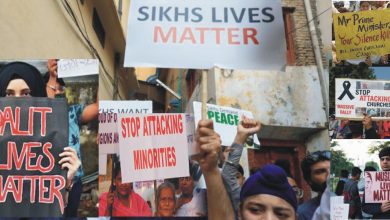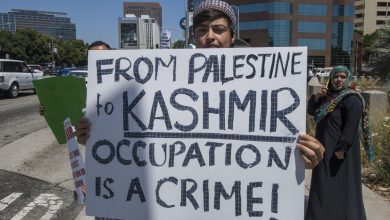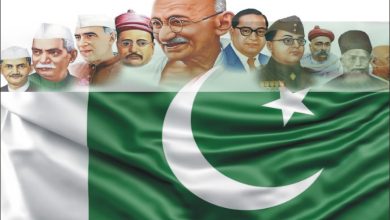IIOJK among most dangerous places for journalists in world: Report
Twenty killed, several injured since 1989
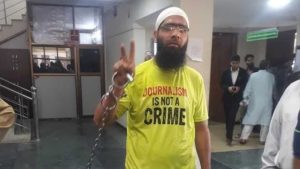 Srinagar: Indian illegally occupied Jammu and Kashmir is one of the most dangerous places of the world where people associated with the press and media are performing their professional duties in the most difficult circumstances.
Srinagar: Indian illegally occupied Jammu and Kashmir is one of the most dangerous places of the world where people associated with the press and media are performing their professional duties in the most difficult circumstances.
According to a report compiled by Kashmir Media Service Editor, Raies Ahmed Mir, on the occasion of the World Press Freedom Day, today, twenty journalists have been confirmed killed while performing their duties during the Kashmiris’ ongoing freedom struggle since 1989. They include Shabbir Ahmed Dar, Mushtaq Ali, Muhammad Shaban Wakeel, a woman scribe Aasiya Jeelani, Ghulam Muhammad Lone, Ghulam Rasool Azad, Pervez Muhammad Sultan, Shujaat Bukhari, Ali Muhammad Mahajan, Syed Ghulam Nabi, Altaf Ahmed Fakhtoo, Saidan Shafi, Tariq Ahmed, Abdul Majid Butt, Javed Ahmed Mir, PN Handoo, Muhammad Shafi, Pradeeep Bhatia, Ashok Sodhi and Rayees Ahmad Butt.
The report pointed out the victimization of journalists in Kashmir has increased manifold since August 05, 2019.
It said that the journalists face manhandling, abductions, murder attempts, harassment, detentions, summoning to police station and death threats by Indian Army, police and other agencies almost routinely in the territory, adding all this has made their everyday work extremely difficult. It revealed that the Kashmiri journalists and many other scribes while performing their professional duties are roughed up, injured and detained by the troops on fake charges in the territory.
Indian police and sleuths of National Investigation Agency (NIA) and State Investigation Agency (SIA) arrested and summoned journalists including, Kamran Yousuf on 04 March 2017, Aqib Javeed on 02 July 2019, Khalid Gul on 06 December, 2022, Manan Gulzar Dar on 10 October 2021, Sartaj Ahmed Butt on 14 March 2023 and Rouf Ahmed Wani on 15 May 2023 for highlighting the brutalities of the Indian troops during the pro-freedom demonstrations in the territory. They were later released after long detentions.
Another journalist Qazi Shibli was booked under black law, Public Safety Act (PSA) on 08 August 2019 and was released on 23 April 2020 while Fahad Shah who was arrested on 4 February was released on 18 Nov 2023.
Aasif Sultan who was arrested on August 27, 2018 and was released after five and half years in Feb 2024 but was rearrested on March 01, 2024 on fake charges under the PSA.
Other journalists including Majid Hyderai, Sajjad Gul, Sartaj Altaf Butt and Irfan Meraaj are still facing illegal detentions in different jails of India and IIOJK.
The journalists were also not allowed by the authorities to write ground situation, news and reports on Indian forces’ cordon and search operations in the occupied territory.
A freelance French journalist, Comiti Paul Edward, was arrested by the Indian police when he was video-graphing the pellet victims in Srinagar city on International Human Rights Day (December 10) in 2017. Comiti Paul Edward later in an interview said that the Kashmiris were facing the worst kind of military repression and human rights violations at the hands of Indian troops and New Delhi did not want these happenings in Kashmir to be known internationally. In his documentary released in 2018, Paul Comiti exposed the killing of Kashmiris by Indian forces.
Annie Gowan, Bureau chief of The Washington Post for India, was restricted by the authorities in a house in Srinagar on 31st July 2018 and was not permitted to move about in the territory for reporting.
The Pulitzer-winning Kashmiri photojournalist Sanna Irshad Mattoo, was stopped by immigration authorities on 02 July, 2022 at New Delhi airport when she was going to attend a photography event in Paris, and again on 17 October 2022 she was stopped by the Indian immigration authorities at New Delhi airport when she was to take a flight to New York to receive the 2022 Pulitzer Prize in a ceremony there.
The freelance journalist Aakash Hassan was barred by the Indian Immigration officials at New Delhi Airport from boarding a flight to Colombo, Sri Lanka, on 26 July, 2022 without giving him any reason, the report said.
Although India has snatched every right including right to freedom of press in the occupied territory, Kashmiri journalists are determined to fight India’s assault on media freedom. Local journalists’ bodies have called upon the international community to come to the rescue of the Kashmiri journalists.
Meanwhile, an Australian journalist Avani Dias left India on April 19, 2024 after the BJP government did not extend her journalist visa until moments before it was due to expire – the latest example of foreign writers, journalists, academics, and activists being denied access to India for seemingly political reasons.
Dias, who works for the Australian Broadcasting Corporation and had been based in India as their South Asia correspondent, said that Indian officials told her she “crossed a line” after a report on the killing of Canadian Sikh Kahlistani leader Hardeep Singh Nijjar. In September 2023, Canadian Prime Minister Justin Trudeau accused India of being involved in Nijjar’s killing, which the Indian government denied. In March, Indian authorities directed the social media platform YouTube to block access to Dias’ report.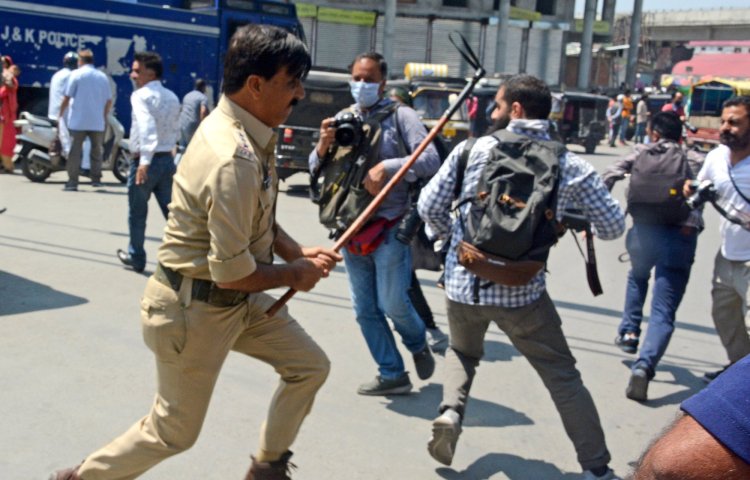
On April 23, more than 30 foreign correspondents in India wrote an open letter protesting Dias’ case, saying the problems she has faced are not new. “Foreign journalists in India have grappled with increased restrictions on visas and journalism permits,” the letter states.
In February, this year, French journalist Vanessa Dougnac left India after authorities issued a notice threatening to cancel her Overseas Citizen of India card, which gives foreign nationals of Indian origin or those married to Indian nationals residency and work permits. Authorities alleged Dougnac, who had worked in India for 22 years, had created a “biased negative perception of India” through her reports, the human rights watch said.





